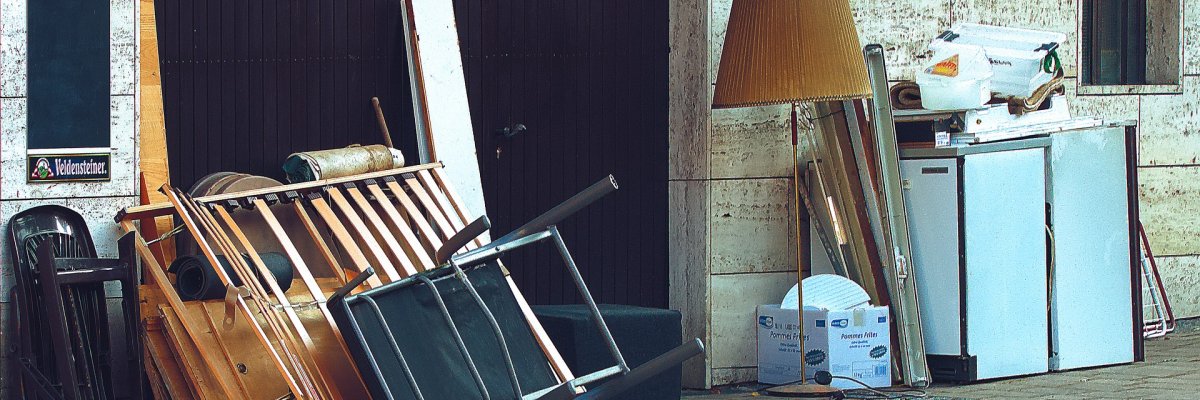Bulky waste
Bulky waste
In general, bulky waste collection is the responsibility of the cities and municipalities. They offer so-called bulky waste cards, which can be purchased and filled out at the respective city or municipality. As soon as the date of the bulky waste collection is fixed, the person registering will be informed at short notice. The system can be used by anyone who is also connected to the normal household waste collection system.
Bulky waste collection and registration is carried out by the towns and municipalities. Those who wish to dispose of their bulky waste themselves can do so at the disposal facilities of the Waldeck-Frankenberg district. ATTENTION: Disposal at the disposal facilities is subject to a charge. Some towns and municipalities now also charge a fee for collection.
Bulky waste is generally collected alongside household waste, as bulky and large waste does not fit into the household waste bins. Often people are not quite sure what really belongs to bulky waste.
What is bulky waste?
Bulky waste is solid waste from households (connected to the regular waste collection by local bylaws) which, due to its bulky nature, does not fit into the usual local waste containers, can only be shredded into the size required for household waste collection with disproportionate effort and must therefore be collected separately.
What belongs in the bulky waste?
Belong in the bulky waste:
- Defective and unusable house and garden furniture
- Defective spring frames, if not made of metal
- defective and unusable mattresses
- Carpets
- individual windows, doors, boards, etc.
- Electrical appliances
What does NOT belong in the bulky waste?
DO NOT belong in the bulky waste:
- Small household appliances (coffee machines, food processors, bread machines, toasters, mixers, etc.) These can be disposed of via the special waste small quantity collection or at the disposal facilities of the district.
- Garden and green waste (this should be disposed of in the organic waste bin)
- Waste containing hazardous substances (e.g. varnishes, paints, light tubes, batteries) Small quantities of these can be disposed of via the district's hazardous waste collection service. Dates and collection points will be announced in good time.
- Cardboard boxes and sacks filled with waste (are not usually taken away by the bulky waste collection)
- Construction waste (quantities of construction waste up to approx. 3 cubic metres can be disposed of via the construction waste collections of the cities and municipalities).
